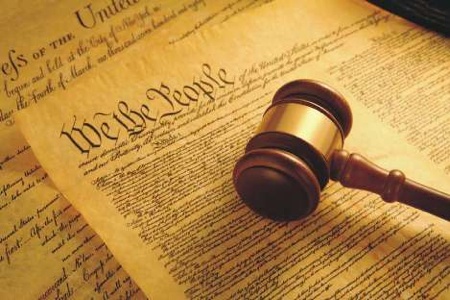Curriculum Advisory Members: On Debt Ceiling Options

Two Explo Curriculum Advisory Committee members, Michael Dorf and Neil Buchanan, recently published an article in the Columbia Law Review entitled “How to Choose the Least Unconstitutional Option: Lessons for the President (and others) From the Debt Ceiling Standoff.” And on Monday, January 7, Dorf was a featured guest on the popular NPR program On Point with Tom Ashbrook.
Spending an hour on air with Tom Ashbrook discussing the article, explaining his points, rebutting opposition, and fielding calls, Dorf, also a former Explo faculty member, was articulate, emphatic, energized, and steadfast.In their article, Dorf and Buchanan argue for the President to “choose the least unconstitutional option” as the nation approaches a recurrence of the fiscal standoff regarding the debt ceiling. Faced with what Dorf and Buchanan call a “trilemma” of unconstitutional choices, the President should opt for the one that is the least unconstitutional, which they contend is to ignore the debt ceiling.
Essentially, Dorf and Buchanan rank the President’s available options concerning the debt ceiling from “least to worst bad,” constitutionally speaking: 1) ignore the debt ceiling and unilaterally issue new bonds, 2) unilaterally raise taxes, or 3) unilaterally cut spending.
What should government officials do if all of the options available to them are unconstitutional?
Dorf and Buchanan, experts in constitutional law and tax law, respectively, strongly advocate that if the United States government is faced with the same debt ceiling standoff as they did in the summer 2011, the President should choose door number one. Secondarily, they contend (more softly, or as they say, “tentatively) that if that choice alone is not sufficient, the President should choose to unilaterally raise taxes. The co-authors rely on Section 4 of the Fourteenth Amendment of The U.S. Constitution for their defense, and they also employ President Lincoln’s “all the laws, but one” speech, given to congress in 1861. “President Lincoln more or less articulated our three criteria for choosing among unconstitutional options.”
Dorf and Buchanan’s article, published in October of 2012, is timely, thought provoking, and thorough. Given the political climate here in the United States and abroad, it is also controversial, and is creating a buzz in both scholarly and more mainstream media outlets. Dorf himself took to his blog immediately following the On Point broadcast to further clarify some points.
For the full transcript of the NPR interview, click here.
To read the Columbia Law Review Article in its entirety, click here.
Michael Dorf is the Robert S. Stevens Professor of Law at Cornell School of Law. Dorf received his B.A. and his J.D. from Harvard University and has written countless essays, dozens of scholarly articles, and four books on constitutional law.
Neil Buchanan is an economist and legal scholar, as well as a Professor of tax law at George Washington University Law school. He has a Ph.D in economics from Harvard University and a J.D., with honors, from the University of Michigan.



